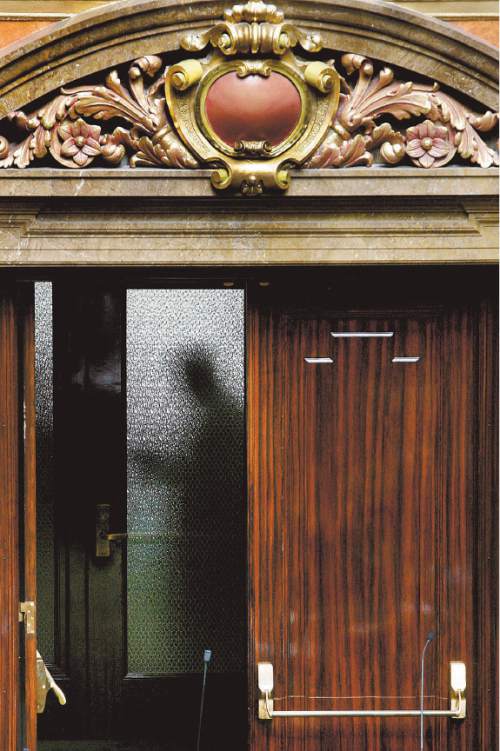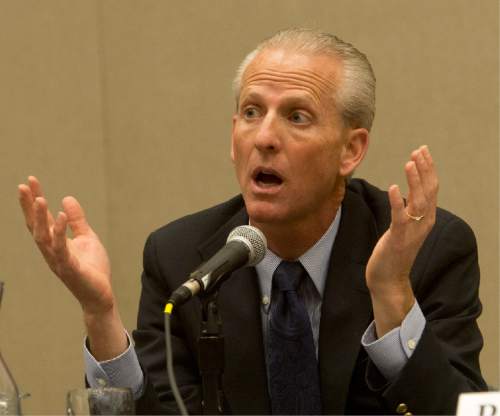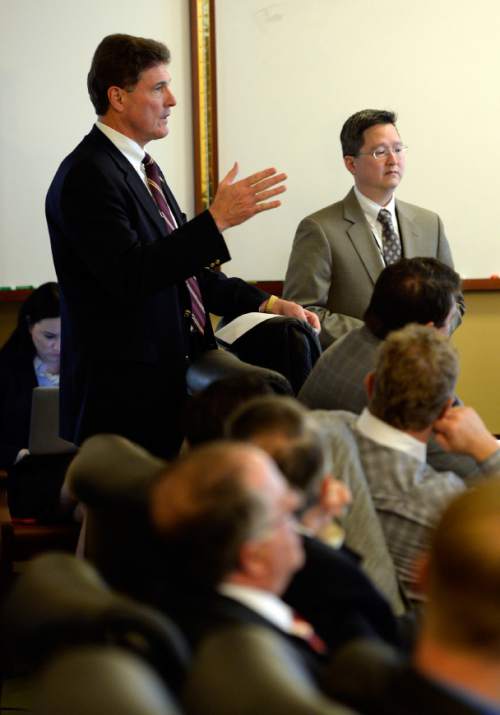This is an archived article that was published on sltrib.com in 2016, and information in the article may be outdated. It is provided only for personal research purposes and may not be reprinted.
Want to know how your legislator voted on Utah Access Plus, the proposal to expand health care to about 125,000 of Utah's poorest residents?
Don't bother searching. There was never an official recorded vote on the plan.
In fact, the votes that doomed the health care bill were all taken in secret — with Republican House members voting in a closed-door meeting and GOP senators casting private votes after confidential discussions.
It's not the kind of lawmaking that Utah voters approve of, according to a new poll for The Salt Lake Tribune and The Hinckley Institute of Politics at the University of Utah. The survey found that 91 percent of Utahns want legislative meetings to be held out in the open.
Republicans control the Senate by a 24-5 margin and the House, 63-12.
Despite the public's preference and protests from Utah media outlets, don't expect much to change in the legislative session beginning Monday.
"We don't plan on changing," said Senate President Wayne Niederhauser, R-Sandy, who argues that having closed-door meetings where Senate Republicans can have frank discussions of bills without fear of criticism from lobbyists or the press yields better legislation for the state.
"I don't hear from my constituents about this issue," Niederhauser said. "I hear about it from you guys [in the media] and you go out and do polls and stir things up."
In the House, most Republican caucus meetings have been open for a number of years. They are closed periodically to discuss litigation or campaign issues, or near the end of the session when the most contentious issues come to the body.
"I agree that legislative meetings should be open," said House Majority Leader Jim Dunnigan, R-Taylorsville. "There is a provision in the law that we can meet as a caucus and not have them open. But that being so, 90 percent of the time, when we meet in caucus, we have them open."
Dunnigan said that he anticipates that the "vast majority" of meetings of the House Republican caucus will again be open this session, "just like it has been in the past."
Democrats in both the House and Senate have open caucuses, and Senate Minority Leader Gene Davis, D-Salt Lake City, said that's the way it should be.
"I think they should be open unless there's specific reason to close them," Davis said. While he doesn't know exactly what happens in the Republican caucus, Davis said he assumes members are just trying to figure out the level of support on specific bills. "If they're trying to find out where their votes are, why should they be in secret?"
Lawyers for the Utah Media Coalition, which includes The Salt Lake Tribune and the major news outlets across the state, sent a letter to legislative leaders last month, arguing that the practice of closing caucuses to debate and vote on specific legislation violates the spirit and the letter of the Open Meetings Act, especially when Republicans hold such dominant majorities in both chambers.
"Utahns deserve better," the Media Coalition wrote. "Utah has a long and proud tradition of conducting the public's business in public. Where people govern themselves, transparency in the conduct of the people's business is critical to maintaining public trust and accountability."
But Niederhauser contends that any bill that is ever discussed in caucus still has to go through committee hearings and debate and votes in both the House and the Senate.
"I think if the public really understood that and was very educated on it, I don't think it would be the same results [in the poll]," he said. "This is not uncommon across the country … that the parties are able to hold a caucus so they could talk fully about the issues and work out some of the problems that come up."
On an issue like Medicaid expansion, Niederhauser said there was valuable discussion of Gov. Gary Herbert's Healthy Utah proposal — the predecessor to Utah Access Plus that died in the House — where members got to spend hours asking questions and debating the merits of the bill privately.
"Without that, the Senate probably wouldn't have passed it," Niederhauser said. "Pick your poison."
The poll found almost unanimous support across religion, age, demographics and even the political spectrum, with 88 percent of Republicans and 92 percent of Democrats agreeing that legislative meetings should be open.
The poll was conducted from Jan. 6-13 by SurveyUSA, which used automated calls to survey 989 Utah registered voters. The poll has a margin of error of 1.8 percent.
Twitter: @RobertGehrke







